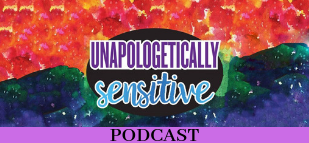Healing Attachment Wounds: Navigating Tough Conversations with Love
Patricia discusses her ongoing work on attachment wounds and her recent conversation with her mother about her childhood. She emphasizes the privilege of being able to have these conversations and acknowledges that not everyone has that opportunity. Patricia also explores expectations in her relationship with Jen, highlighting the challenges of navigating attachment injuries. She shares an email from a listener expressing gratitude for her vulnerability and relatability. Patricia concludes by affirming the importance of honoring all of your feelings.
HIGHLIGHTS
Takeaways
- Having conversations about attachment wounds with a parent or caregiver can be a healing and transformative experience, but it is a privilege that not everyone has.
- The healing work can still happen even if you can’t do it with the person where the injuries originally happened.
- The majority of healing work is done individually, with support from coaches or therapists, and having conversations with a parent or caregiver is just a small part of the process.
- Navigating attachment and expectations in relationships can be challenging, especially for individuals with attachment injuries. It is important to communicate and share feelings with your partner (when it is safe and appropriate) to create understanding and connection.
- Sharing vulnerability and authenticity can have a profound impact on others, as it helps them feel seen, heard, and less alone in their own struggles.
- Embracing sensitivity and honoring all of our feelings, even the challenging ones, is an important part of self-care and self-acceptance.
Additional Concepts Covered
- Embracing Vulnerability: Acknowledging and exploring emotional openness in healing.
- Cultivating Empathy: Nurturing understanding and compassion in relationships.
- Navigating Childhood Wounds: Understanding the impact of past experiences on present emotions.
- Honoring Neurodiversity: Recognizing and respecting diverse cognitive perspectives.
- Fostering Emotional Resilience: Building strength in facing emotional challenges.
- Celebrating Individual Differences: Valuing unique ways of processing emotions.
- Promoting Self-Care Practices: Encouraging personalized well-being routines.
- Empowering Neurodiverse Voices: Amplifying diverse narratives in healing conversations.
- Building Emotional Intelligence: Developing awareness and regulation of emotions.
- Creating Safe Spaces: Establishing supportive environments for emotional expression.
- Exploring Trauma Healing: Engaging in the process of emotional recovery and growth.
- Supporting Coping Strategies: Assisting in developing effective ways to manage emotions.
- Advocating for Inclusivity: Promoting acceptance and understanding in emotional discussions.
- Navigating Complex Emotions: Understanding and processing intricate feelings.
- Respecting Personal Boundaries: Honoring individual needs and comfort levels.
- Amplifying Diverse Narratives: Elevating a range of experiences in emotional healing.
- Encouraging Self-Reflection: Promoting introspection and self-awareness.
- Embracing Neurodivergent Perspectives: Valuing unique viewpoints in emotional discussions.
- Promoting Emotional Wellness: Supporting holistic well-being in emotional journeys.
- Championing Self-Acceptance: Encouraging self-love and validation in emotional growth
Sound Bites
“I’m always touched and inspired by your authenticity and depth.”
“I’m having feelings. Let’s look at the feelings. What is the reality and do the work that I need to do.”
“You have a right to all your feelings. You have a right to be loud. You have a right to be intense. You have a right to take up space.”
Chapters please allow for the addition of the introduction
00:00 Introduction and Update
02:00 The Healing Work and Reparenting Process
08:03 Challenges and Vulnerability in Conversations
14:06 Self-Care and Managing Attachment Injuries
29:01 Managing Change and Uncertainty
37:48 Gratitude for Vulnerability and Embracing Sensitivity
PODCAST HOST
Patricia was a Licensed Clinical Social Worker for over 17 years, but she is now exclusively providing coaching. She knows what it’s like to feel like an outcast, misfit, and truthteller. Learning about the trait of being a Highly Sensitive Person (HSP), then learning she is AuDHD with a PDA profile and RSD, helped Patricia rewrite her history with a deeper understanding, appreciation, and a sense of self-compassion. She created the podcast Unapologetically Sensitive to help other neurodivergent folks know that they aren’t alone, and that having a brain that is wired differently comes with amazing gifts, and some challenges. Patricia works online globally working individually with people, and she teaches Online Courses for neurodivergent folks that focus on understanding what it means to be a sensitive neurodivergent. Topics covered include: self-care, self-compassion, boundaries, perfectionism, mindfulness, communication, and creating a lifestyle that honors you
LINKS
Neurodivergent Online Course– https://unapologeticallysensitive.com/neurodivergent-online-courses/
Receive the top 10 most downloaded episodes of the podcast– https://www.subscribepage.com/e6z6e6
Sign up for the Newsletter– https://www.subscribepage.com/y0l7d4
To write a review in itunes:
- click on this link https://itunes.apple.com/us/podcast/unapologetically-sensitive/id1440433481?mt=2
- select “listen on Apple Podcasts”
- chose “open in itunes”
- choose “ratings and reviews”
- click to rate the number of starts
- click “write a review”
Website–www.unapologeticallysensitive.com
Facebook– https://www.facebook.com/Unapologetically-Sensitive-2296688923985657/
Closed/Private Facebook group Unapologetically Sensitive– https://www.facebook.com/groups/2099705880047619/
Instagram– https://www.instagram.com/unapologeticallysensitive/
Youtube– https://www.youtube.com/channel/UCOE6fodj7RBdO3Iw0NrAllg/videos?view_as=subscriber
Tik Tok–https://www.tiktok.com/@unapologeticallysensitiv
e-mail– unapologeticallysensitive@gmail.com
Show hashtag–#unapologeticallysensitive
Music– Gravel Dance by Andy Robinson www.andyrobinson.com

